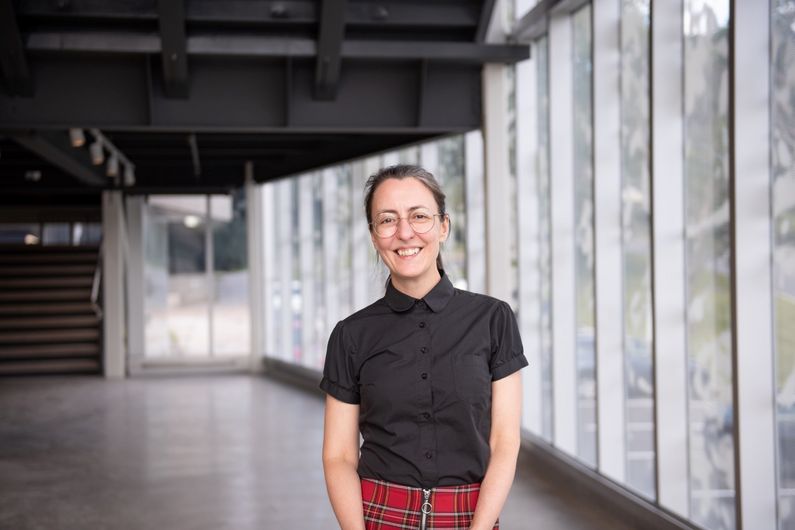Exploring linguistic and human landscapes in translation
- UdeMNouvelles
09/26/2023
- Martin LaSalle
Incoming assistant professor Anne-Marie Gagné takes an historical and sociological approach to how different languages are rendered.
Anne-Marie Gagné, a newly appointed assistant professor in the Department of Linguistics and Translation Studies at Université de Montréal, has been exploring languages and cultures throughout her academic and professional career.
Her intellectual journey has taken her from social sciences to translation studies, where she now examines the importance of translation and the role of the human translator in a world increasingly dominated by technology.
Gagné has always been fascinated by history – not only its important dates and events, but the daily lives of ordinary people through the ages – and this led to a deep interest in the social sciences and humanities. After briefly exploring anthropology, she travelled across Canada and Mexico, acquiring a working knowledge of English and Spanish along the way.
In 2009, she enrolled in the bachelor’s program in translation at UdeM, planning to work as a professional translator and to use her language skills in her travels. Already able to speak three languages, she decided to add a minor in Hispanic Studies to hone her writing skills in the language of Cervantes.
A passion for translatology
During her undergraduate studies, Gagné discovered a passion for translatology, the study of the theory and practice of translation throughout history. While many of her classmates showed little interest in the subject, Gagné was hooked.
“Throughout history, the choices made by translators when translating texts have always been shaped by a host of historical and sociocultural factors,” she explained. “For my master’s research, I wanted to examine the process of retranslation and the factors, both human and linguistic, that influence it.”
For her master’s thesis, Gagné analyzed the French translations of the classic Latin American non-fiction trilogy Memoria del fuego (Memory of Fire) by Uruguayan writer Eduardo Galeano. The books were translated into French in the 1980s as Mémoire du feu. A revised French translation was published in Quebec in 2013. Gagné interviewed the Quebec reviser and analyzed the revision using a multi-method approach.
After completing her master’s, Gagné gained practical experience by working as a professional translator and reviser. She then began a Ph.D. in translation studies in 2017, this time focusing on the sociological determinants of translation.
Gagné’s thesis, completed in 2022, examined the English and Spanish versions of Peter Berger’s Invitation to Sociology, originally published in 1963 in the United States. Her analysis explored the impact of sociocultural and historical factors as well as the role of translators, publishers and readers in the production of these translations.
Human translators still important
Although the use of translation technologies is spreading fast, Gagné remains convinced of the importance of human translators.
“While machine translation can help people communicate in some situations, it cannot duplicate the rich experience of human translation,” said Gagné, who is currently studying translators’ relationship with and attitudes toward the translation technologies they use.
Gagné believes human translation will endure because of the creativity and emotional sensitivity that humans bring to the task of translation.
“Neural machine translation is good for tedious tasks but it lacks the depth and nuance that only humans can bring,” she argued. “The future of translation isn’t just about how fast we can translate texts; it’s about the ability to foster an interest in the diversity of human existence and in sharing that experience through language.”








